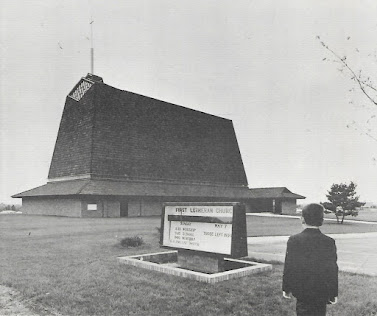Thank God!
By Bishop Brian Maas
“Do not
worry about anything, but in everything by prayer and supplication with thanksgiving
let your requests be made known to God. And the peace of God, which
surpasses all understanding, will guard your hearts and your minds in Christ
Jesus.” –Philippians 4:6-7
Paul was on to something when he
wrote these words, and as we continue to learn, scripture was way ahead of
science in speaking truths about human nature. Nothing is less surprising than
writing about gratitude in November. But I’d invite a different perspective as
you head toward Thanksgiving this year. Don’t let it be (and if possible, don’t
ever let it be again!) about the notion that “God has given us so much; we
should be grateful.” Nonsense! If it’s because we should, it isn’t
gratitude!
Gratitude is instead an
awareness—the recognition that we experience things we don’t deserve, things we
don’t earn on our own, things that God has in one way or another given to us.
Our culture isn’t great on pausing, but it’s in the pauses we take that
gratitude arises. It’s not that we can’t experience thanksgiving while we’re
busy, it’s just that we tend to be so focused on what we’re doing we don’t
recognize the gifts around us. Like drivers speeding down the interstate, we
can be so focused on the road we miss the scenery.
I’ve mentioned in other posts the
works of Brené Brown, whose studies make clear the connection between gratitude
and joy, but she’s far from the only researcher who’s discovered this
connection. She quotes a Jesuit priest who stated, “it’s not our experience of
joy that leads us to gratitude; it’s our experience of gratitude that leads us
to joy.”
This is exactly Paul’s point—don’t
worry! (and if you don’t trust Paul, then trust Jesus: “So do not worry about tomorrow,
for tomorrow will bring worries of its own. Today’s trouble is enough for
today.” [Matthew 6:34]). Instead, pray and ask God for what you need—but root that
prayer in thanksgiving. And the consequence of that gratitude is “the
peace of God, which surpasses all understanding”—or what we might call joy.
So don’t give thanks because you
should. Give thanks because you can. Even more so, pause until you give thanks
because you cannot not thank God. Set an alarm to remind yourself to
take 60 seconds one or more times a day to experience thanksgiving. Name three
things you’re thankful for at the start or the end of every day. Journal daily
about something you’re grateful for. Don’t just say grace before each meal;
take turns saying aloud what you’re thankful for in the moment.
Practice gratitude.
But be prepared. You’ll soon know
peace. You’ll soon experience joy.
What a gift.
Thank God!




Comments
Post a Comment